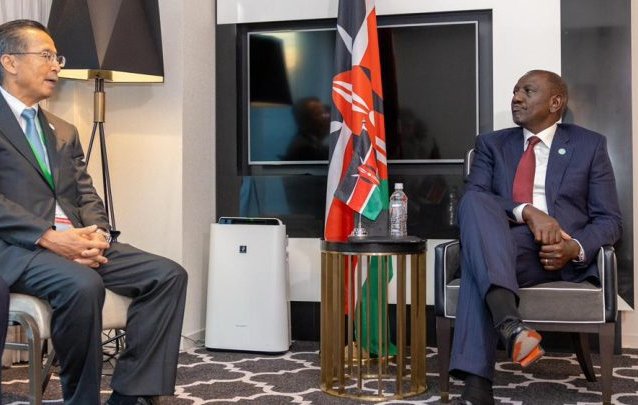Kenya has secured a major financing deal with Japan, marking a new chapter in East Africa’s trade and development partnership. The agreement was signed in Tokyo during President William Ruto’s visit for the 9th Tokyo International Conference on African Development (TICAD 9), where he met Prime Minister Shigeru Ishiba. The yen-denominated loan, backed by Nippon Export and Investment Insurance (NEXI), is expected to fund critical projects in infrastructure, manufacturing, and industrial skills development.
While the exact figures have not yet been disclosed, both leaders hailed the deal as a significant step in strengthening economic ties. Prime Minister Ishiba praised Kenya’s industrial progress and reaffirmed Japan’s commitment to supporting human resource development in automation and other industries. He also highlighted Tokyo’s ongoing grant support for the expansion of Mombasa Port, the busiest trade gateway in East Africa.
President Ruto welcomed the partnership, emphasizing Kenya’s determination to build stronger global ties that unlock opportunities for its people while reinforcing the country’s role as a regional hub. “Kenya is committed to partnerships that open new markets and deepen our participation in the global economy,” he said.
Japan has long been one of Kenya’s most reliable development partners. Since the 1980s, Tokyo has extended more than KSh600 billion (USD 4.5 billion) in loans and grants, financing key projects such as the Olkaria geothermal plants, the Nairobi Ring Road, Ngong Road upgrades, and water and sanitation improvements in major cities. The new loan continues this legacy, with particular focus on energy, logistics, and digital infrastructure to enhance Kenya’s competitiveness.
Japan’s engagement goes beyond Kenya, with major investments in Tanzania’s Dar es Salaam Port, Ethiopia’s urban transport systems, and Mozambique’s LNG projects. Yet Kenya remains Japan’s anchor partner in East Africa, thanks to its strategic location and expanding manufacturing base. The Mombasa Port plays a crucial role in supporting trade not only for Kenya but also for Uganda, Rwanda, Burundi, and South Sudan.
The loan deal also extends beyond economics. Both governments pledged closer cooperation on regional peace, African security, and reforms at the United Nations Security Council. The agreement aligns with Japan’s “Free and Open Indo-Pacific” strategy while bolstering Kenya’s ambition to lead as East Africa’s logistics and industrial hub.
Takeaway: The yen loan deal underscores Kenya’s rising importance on the global economic stage and reflects Japan’s deepening commitment to Africa. If implemented effectively, it could transform Kenya’s infrastructure, boost manufacturing, and open new opportunities for regional trade.
